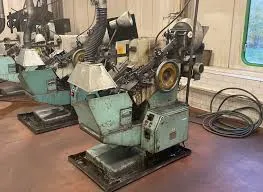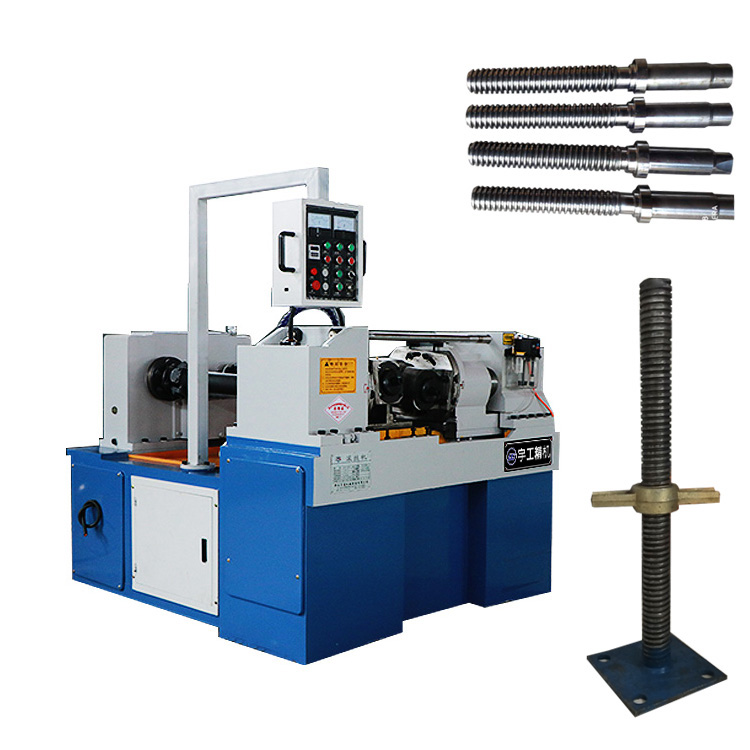
-
 Afrikaans
Afrikaans -
 Albanian
Albanian -
 Amharic
Amharic -
 Arabic
Arabic -
 Armenian
Armenian -
 Azerbaijani
Azerbaijani -
 Basque
Basque -
 Belarusian
Belarusian -
 Bengali
Bengali -
 Bosnian
Bosnian -
 Bulgarian
Bulgarian -
 Catalan
Catalan -
 Cebuano
Cebuano -
 Corsican
Corsican -
 Croatian
Croatian -
 Czech
Czech -
 Danish
Danish -
 Dutch
Dutch -
 English
English -
 Esperanto
Esperanto -
 Estonian
Estonian -
 Finnish
Finnish -
 French
French -
 Frisian
Frisian -
 Galician
Galician -
 Georgian
Georgian -
 German
German -
 Greek
Greek -
 Gujarati
Gujarati -
 Haitian Creole
Haitian Creole -
 hausa
hausa -
 hawaiian
hawaiian -
 Hebrew
Hebrew -
 Hindi
Hindi -
 Miao
Miao -
 Hungarian
Hungarian -
 Icelandic
Icelandic -
 igbo
igbo -
 Indonesian
Indonesian -
 irish
irish -
 Italian
Italian -
 Japanese
Japanese -
 Javanese
Javanese -
 Kannada
Kannada -
 kazakh
kazakh -
 Khmer
Khmer -
 Rwandese
Rwandese -
 Korean
Korean -
 Kurdish
Kurdish -
 Kyrgyz
Kyrgyz -
 Lao
Lao -
 Latin
Latin -
 Latvian
Latvian -
 Lithuanian
Lithuanian -
 Luxembourgish
Luxembourgish -
 Macedonian
Macedonian -
 Malgashi
Malgashi -
 Malay
Malay -
 Malayalam
Malayalam -
 Maltese
Maltese -
 Maori
Maori -
 Marathi
Marathi -
 Mongolian
Mongolian -
 Myanmar
Myanmar -
 Nepali
Nepali -
 Norwegian
Norwegian -
 Norwegian
Norwegian -
 Occitan
Occitan -
 Pashto
Pashto -
 Persian
Persian -
 Polish
Polish -
 Portuguese
Portuguese -
 Punjabi
Punjabi -
 Romanian
Romanian -
 Russian
Russian -
 Samoan
Samoan -
 Scottish Gaelic
Scottish Gaelic -
 Serbian
Serbian -
 Sesotho
Sesotho -
 Shona
Shona -
 Sindhi
Sindhi -
 Sinhala
Sinhala -
 Slovak
Slovak -
 Slovenian
Slovenian -
 Somali
Somali -
 Spanish
Spanish -
 Sundanese
Sundanese -
 Swahili
Swahili -
 Swedish
Swedish -
 Tagalog
Tagalog -
 Tajik
Tajik -
 Tamil
Tamil -
 Tatar
Tatar -
 Telugu
Telugu -
 Thai
Thai -
 Turkish
Turkish -
 Turkmen
Turkmen -
 Ukrainian
Ukrainian -
 Urdu
Urdu -
 Uighur
Uighur -
 Uzbek
Uzbek -
 Vietnamese
Vietnamese -
 Welsh
Welsh -
 Bantu
Bantu -
 Yiddish
Yiddish -
 Yoruba
Yoruba -
 Zulu
Zulu
Precision Screw Thread Rolling Machine Supplier High-Quality Solutions
- Key technical advancements in modern thread rolling machinery
- Performance metrics comparison of leading suppliers
- Customization capabilities across different manufacturing scenarios
- Material compatibility specifications for various applications
- Industry-specific implementation case studies
- Future development trends in thread forming technology
- Strategic selection criteria for reliable screw thread rolling machine supplier
s

(screw thread rolling machine supplier)
Core Technical Advantages from Leading Screw Thread Rolling Machine Suppliers
Contemporary screw thread rolling machine suppliers employ revolutionary cold-forming methodologies that fundamentally transform fastener production economics. These machines generate threads through compressive material displacement rather than subtractive cutting, preserving up to 20% of workpiece material while tripling production throughput. The precision engineering integrated into advanced models achieves ISO 2768 fine tolerance levels while simultaneously reducing energy consumption by 35% compared to machining alternatives. Dual hydraulic synchronization systems maintain consistent pressure profiles across rollers, eliminating thread imperfections despite 24-hour continuous operation cycles. This technology extends tool lifespan by 400% compared to conventional thread cutting while delivering ultimate tensile strengths enhanced by up to 30% due to advantageous grain flow restructuring.
Quantitative Performance Analysis of Industrial Solutions
Comprehensive evaluations demonstrate significant operational variances across equipment tiers. Premium screw rolling machine suppliers incorporate proprietary vibration-damping technology that achieves micron-level precision at maximum rotational velocities. Production metrics reveal decisive advantages:
| Parameter | Entry-Level Systems | Mid-Range Machines | Premium Suppliers |
|---|---|---|---|
| Hourly Output Capacity | 800-1,200 units | 2,000-3,500 units | 5,000-8,000 units |
| Tooling Longevity | 90,000 cycles | 240,000 cycles | 600,000+ cycles |
| Dimensional Tolerance | ±0.05mm | ±0.025mm | ±0.01mm |
| Automation Integration | Basic PLC | HMI Controls | Industry 4.0 IoT |
Leading manufacturers like Ferdi, Sacma, and TAIYOKOKI dominate the premium segment with proprietary enhancements that reduce changeover time to under 6 minutes and incorporate adaptive pressure calibration sensors for seamless material variance compensation.
Application-Specific Engineering Customization
Progressive flat thread rolling machine suppliers offer modular architecture facilitating rapid adaptation to specialized manufacturing requirements. Standard customization options include:
- Radial force adjustment configurations (8-60 tons capacity)
- Multi-axis blank positioning systems with 0.002mm repeatability
- Modular roller cassettes compatible with ANSI, DIN, JIS standards
- Automated defect detection using vision-based metrology systems
For unique material processing scenarios, manufacturers implement engineered solutions featuring hardened toolsteel roller surfaces at 62-64 HRC for non-ferrous applications and polycrystalline diamond coatings for tungsten alloy threading. Production validation protocols typically include trial runs with statistical process control documentation before system commissioning.
Material Compatibility Engineering Specifications
Cold-forming equipment exhibits distinct material processing parameters that dictate machinery selection criteria:
Ferrous Alloys: Processing tempered steel (HRC 32-45) requires 400-series tooling with compressive capacities exceeding 350kg/mm². Optimal deformation ratios below 85% prevent work hardening fractures.
Non-Ferrous Applications: Copper and aluminum alloys necessitate roller surface finishes below 0.2Ra µm with maximum spindle rigidity to overcome material resilience. Pitch compensation algorithms automatically adjust for spring-back effects.
Exotic Materials: Titanium grades require specialized roller geometries designed with 50-55° entry angles rather than conventional 30° approaches. Pressure profiling must remain below 60% of material tensile strength to prevent alpha-case formation.
Reliable screw thread rolling machine suppliers provide material compatibility matrices validated through extensive metallurgical testing for critical applications.
Implementation Success Documentation
Automotive fastener manufacturing transitions demonstrate transformative outcomes. A major Tier 1 supplier achieved 79% tooling cost reduction when switching from machining to cold rolling for M8x1.25 suspension bolts. The transition required:
1. Dual-spindle rolling machines with asymmetrical roller configuration
2. Automated hardness verification pre-process scanning
3. Statistical process control integrated with OPC-UA protocol
The implementation generated 12-month ROI through 17% material savings and 35% cycle time reduction. Similarly, a medical device manufacturer eliminated secondary operations for bone screws through micro-forming equipment integration, achieving surface finishes below 0.4µm RA without polishing.
Technological Evolution in Thread Forming Systems
Progressive screw rolling machine suppliers actively develop machine learning-enhanced predictive maintenance capabilities with vibration signature analysis algorithms that forecast bearing failures 300 operating hours before occurrence. Emerging technologies include:
• Self-adjusting roller gap compensation systems using magnetostrictive sensors
• Tribologically-optimized diamond-like carbon coatings extending tool life beyond 2 million cycles
• Hypersonic surface treatment techniques that enhance roller durability against abrasive materials
Intelligent systems constantly monitor process signatures for thermal expansion variables during operation, automatically compensating for dimensional drift without production interruption.
Strategic Engagement with Qualified Screw Thread Rolling Machine Suppliers
Selecting premium screw thread rolling machine suppliers necessitates multifaceted evaluation beyond initial pricing considerations. Industry leaders typically demonstrate:
- On-site production validation facilities featuring full-scale testing capabilities
- Comprehensive certification packages including FEM analysis documentation
- Integrated control platforms with communication protocols compatible with MES implementations
The premier category of flat thread rolling machine suppliers provides integrated productivity guarantees covering output rates, dimensional stability, and tooling longevity. Progressive maintenance contracts include remote diagnostics services that automatically monitor vibration spectra, thermal profiles, and power consumption patterns for predictive servicing. Suppliers who actively collaborate in material science advancements provide ongoing competitive advantages for manufacturers seeking durable partnerships.

(screw thread rolling machine supplier)
FAQS on screw thread rolling machine supplier
Q: What factors should I consider when choosing a screw thread rolling machine supplier?
A: Prioritize suppliers with proven industry experience, certifications like ISO, and positive client testimonials. Ensure they offer customization, technical support, and reliable after-sales service.
Q: How does a flat thread rolling machine differ from other screw rolling machines?
A: Flat thread rolling machines use flat dies to create threads, ideal for high-volume production and consistent precision. Other types, like cylindrical machines, suit complex or tapered threads.
Q: What industries commonly require screw rolling machine suppliers?
A: Automotive, aerospace, construction, and fastener manufacturing industries rely on these machines for durable, high-precision threaded components.
Q: How do I verify the quality of a screw thread rolling machine supplier’s products?
A: Request product certifications, material test reports, and case studies. Reputable suppliers often provide live demonstrations or trial runs to validate performance.
Q: What customization options do screw thread rolling machine suppliers typically offer?
A: Options include adjustable speed/pressure settings, multi-axis controls, and custom die designs. Suppliers may also tailor machines for specific materials or thread profiles.
